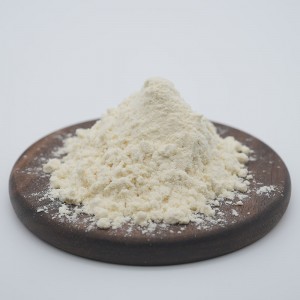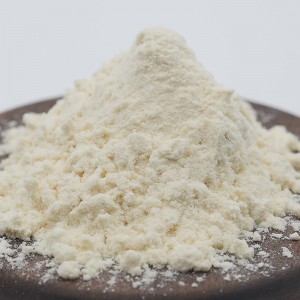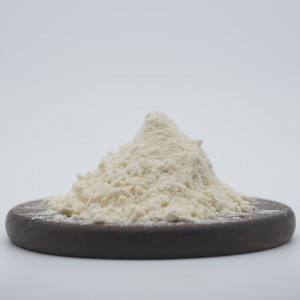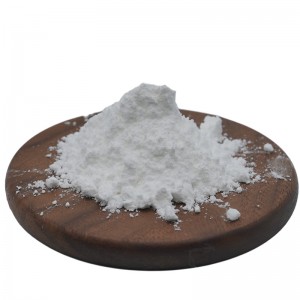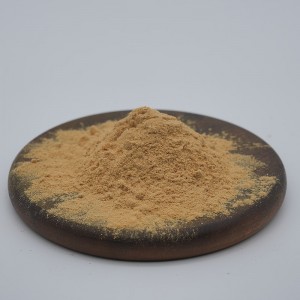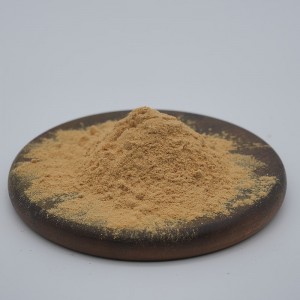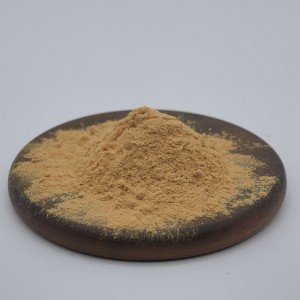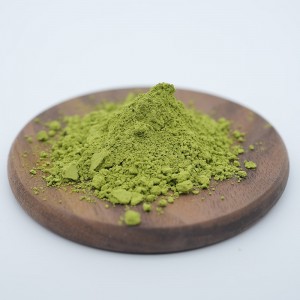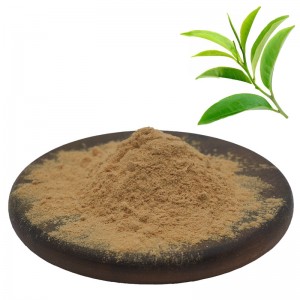
Products
Bitter almond extract, amygdalin 98%
Product Description
Bitter almond extract, specifically amygdalin 98%, is a natural substance derived from the kernels of bitter almonds (Prunus dulcis var. amara). Bitter almond extract has gained attention for its unique composition, particularly its high concentration of amygdalin. It is important to note that while bitter almonds differ from sweet almonds in taste and amygdalin content, both types contain this compound.
Amygdalin is a cyanogenic glycoside present in various plants, including bitter almonds. It is also found in other members of the Rosaceae family, such as apricot kernels and peach pits. Amygdalin is known for its characteristic bitter taste and has been the subject of interest for its potential health benefits.
Bitter almond extract containing amygdalin 98% is sought after by some individuals due to its reputed therapeutic properties. It is believed to possess antioxidant properties, which may help protect cells against oxidative damage caused by free radicals. Antioxidants play a crucial role in maintaining overall health and have been associated with a reduced risk of chronic diseases.
Furthermore, amygdalin in bitter almond extract is often associated with its potential effects on supporting a healthy immune system. Some proponents suggest that amygdalin may have immunomodulatory properties, meaning it may help regulate immune function. However, it is essential to note that the research in this area is limited, and further studies are needed to elucidate the specific mechanisms and effects of amygdalin on immune health.
Bitter almond extract is also known for its use as a flavoring agent in certain culinary applications. Its distinct bitter taste adds a unique element to various dishes and beverages, often used sparingly for flavor enhancement. However, it is crucial to exercise caution when using bitter almond extract for culinary purposes, as excessive ingestion could lead to potential cyanide toxicity due to the presence of amygdalin.
It is worth mentioning that the safety and potential risks associated with bitter almond extract and amygdalin consumption have generated considerable debate. Amygdalin can release hydrogen cyanide when metabolized, leading to concerns over its safety. However, bitter almond extract used in culinary preparations or sourced from reputable suppliers typically contains low levels of amygdalin, which are considered safe for consumption. It is essential to adhere to recommended usage guidelines and consult with a healthcare professional if there are any concerns.
Moreover, it is important to note that bitter almond extract and amygdalin are not approved as medicinal treatments or medications by regulatory authorities. Claims regarding the use of bitter almond extract or amygdalin for specific medical conditions or diseases should be approached with skepticism, as scientific evidence supporting such claims is limited.
In summary, bitter almond extract, specifically amygdalin 98%, is derived from the kernels of bitter almonds and is known for its high concentration of amygdalin. Amygdalin is a compound found in various plants and is associated with a bitter taste. Bitter almond extract is sought after for its potential antioxidant properties and its reputed effects on immune health. However, it is crucial to exercise caution when using bitter almond extract due to potential risks associated with excessive amygdalin consumption. Bitter almond extract should not be considered a medicinal treatment or medication, and claims regarding its efficacy for specific medical conditions should be supported by scientific evidence. As with any dietary supplement, it is advisable to consult with a healthcare professional before incorporating bitter almond extract into your routine.
Certificate of Analysis





